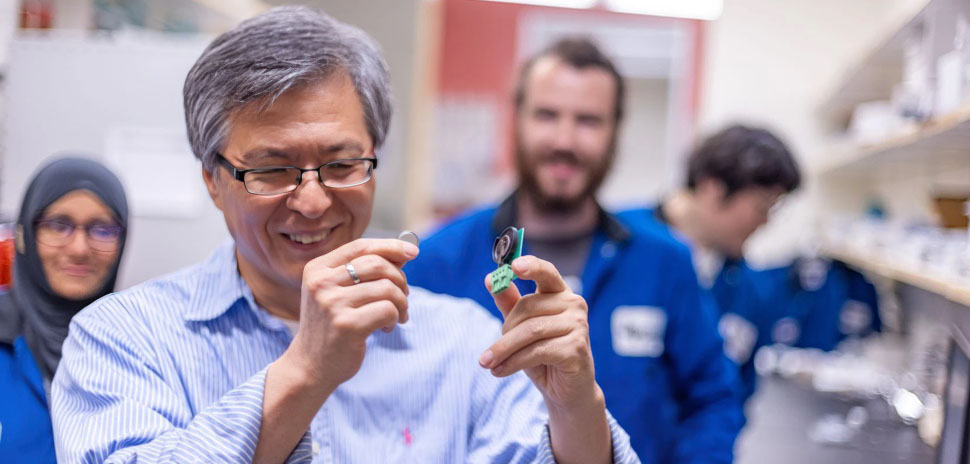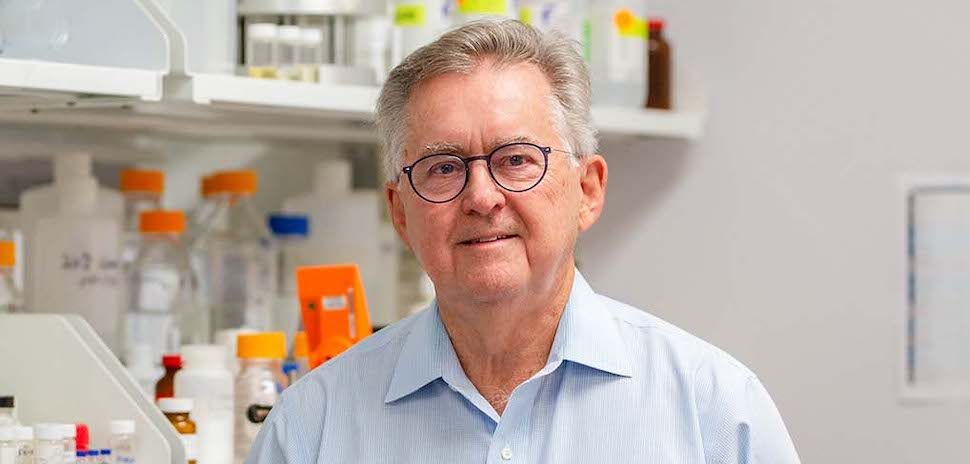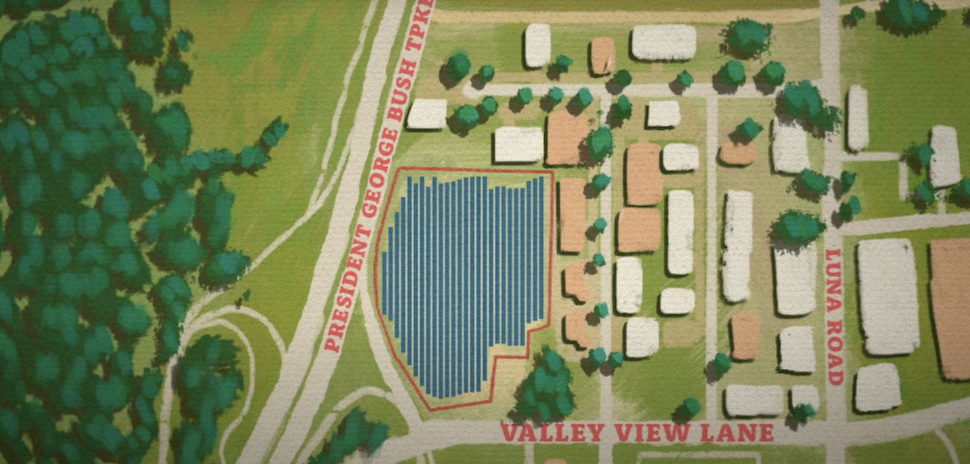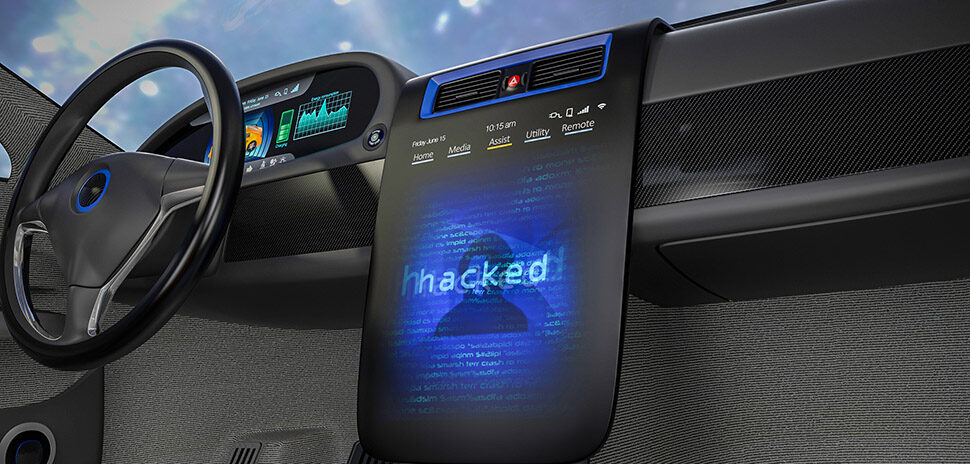As the U.S. and the world make an epochal shift toward electrification, one key component is ripe for innovation: batteries that will reshape our future. The U.S. Department of Defense announced a big investment Monday to help spur that innovation, with a $30 million award to UT Dallas.
The DOD award will fund a three-year, $30 million project to establish an “energy storage systems campus,” with a goal of accelerating the transition and scaling of next-generation batteries, while reducing dependence on scarce critical materials.
The UTD-led project will include construction of a new research facility in the Richardson Innovation Quarter.
The Defense Department award is the largest federal agency allocation UT Dallas has ever received. And its impact has even more zeros attached to it: The project is expected to “leverage and stimulate over $200 million in private capital,” the Defense Department said.
UT Dallas spearheaded the successful bid for the project, and will advance it by leading a diverse consortium of universities, emerging and established businesses, and four national laboratories over the next three years.
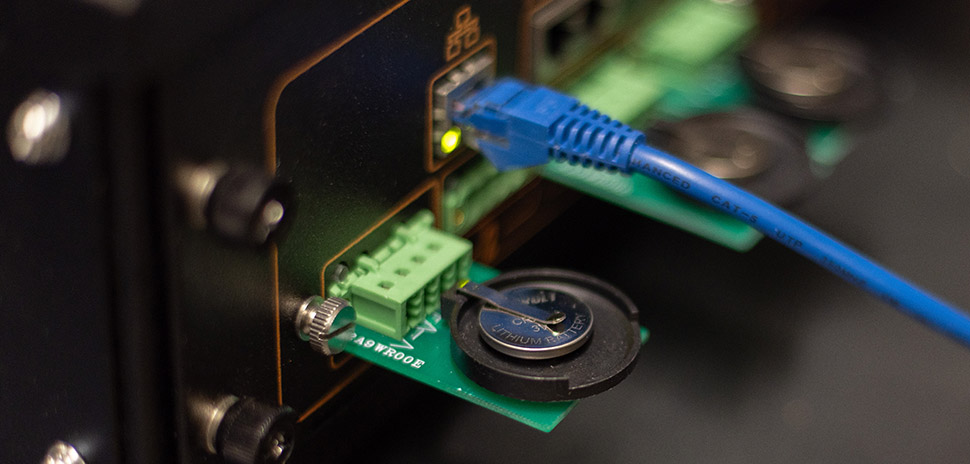
Once they’re finished, batteries are tested in Dr. Cho’s UTD lab. [Photo: UT Dallas]
BEACONS center to be led by UTD’s Dr. Kyeongjae Cho
UTD’s Dr. Kyeongjae Cho, professor of materials science and engineering in the Erik Jonsson School of Engineering and Computer Science and co-principal investigator, will lead the project as the director of the Batteries and Energy to Advance Commercialization and National Security (BEACONS) center, UTD said.
Cho said the Defense Department is focused on bringing advanced manufacturing and supply chains to the U.S.—including battery manufacturing and supplies of critical raw materials.
“We identified a unique area that satisfies the Department of Defense’s needs for battery technology,” Cho said in a statement. “This investment by the DOD will facilitate collaboration with our industry partners to help ensure reliable, domestic manufacture of lithium-ion cells, as well as the battery packs that support defense systems and advanced commercial systems.”
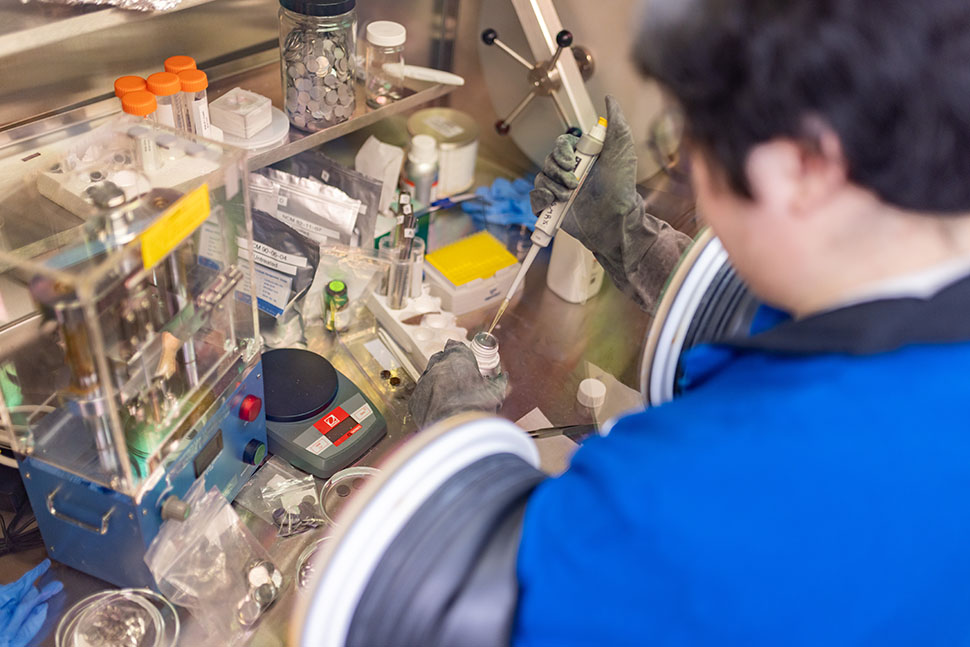
Dr. Taesoon Hwang, materials science and engineering postdoctoral researcher, thrusts his arms into a “glove box” to assemble the battery. The glove box protects researchers from exposure to hazardous materials inside batteries and protects the sensitive materials from water and oxygen. [Photo: UT Dallas]
Partners include an energy storage consortium and universities in Berkeley and Chicago
Key partners on the project include LEAP Manufacturing, a consortium of energy storage companies; Associated Universities Inc.; the University of California, Berkeley; and the University of Chicago. The project will be funded by the DOD’s Manufacturing Capability Expansion and Investment Prioritization Directorate.
UT Dallas president Dr. Richard Benson called the project “a tremendous opportunity to showcase UTD’s mission of research, service, and teaching in the context of accelerating workforce development and next-generation solutions that are critical to our nation’s economy and defense readiness.”
“The expertise of our faculty researchers, the excellence of our academic programs in engineering and science, and our demonstrated ability to leverage partnerships with industry put UTD in a unique position to lead this national effort to drive innovation in battery technology and manufacturing,” Benson added in a statement.
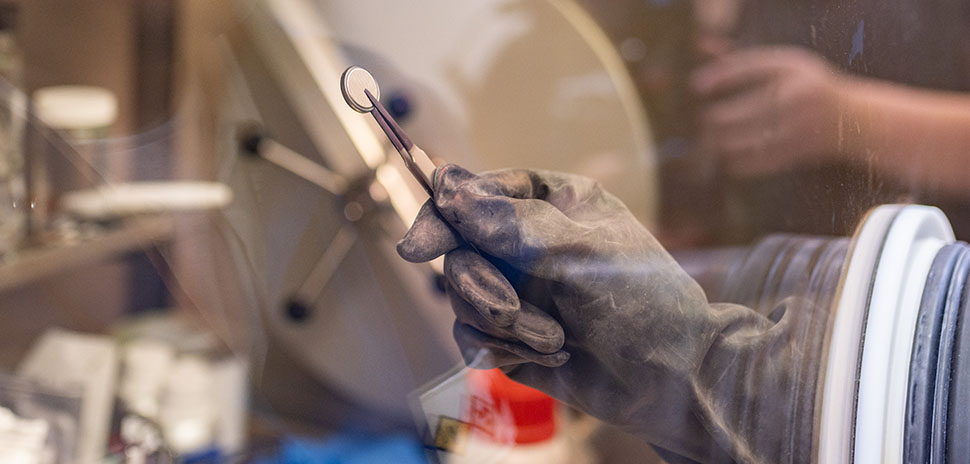
A researcher displays the battery after it’s assembled in the glovebox, a sealed container used when working with hazardous and sensitive substances. [Photo: UT Dallas]
The project’s four key goals
The BEACONS center will focus on four main goals to advance the project, UTD said:
- Optimizing existing battery systems, including integrating robotics and automation into manufacturing
- Fostering the development of new battery chemistries that reduce the use of scarce raw materials
- Identifying and tracking supply chain challenges for critical minerals, such as lithium, needed in energy storage systems
- Developing the workforce needed for energy storage system development and manufacturing
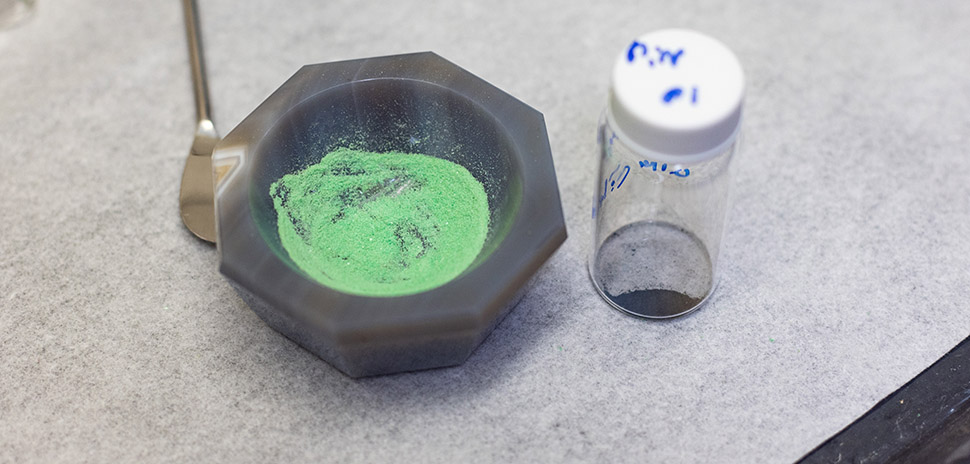
After ingredients are ground into fine particles, they are baked above 700 degrees Celsius, then mixed other components in a solvent to form a viscous liquid like honey that will be applied to and dried on metal current collectors as part of the process of making the battery cathode. [Photo:UT Dallas]
UTD will construct a new research facility in the Richardson IQ
As part of the project, UTD will construct a new research facility within a 1,200-acre area of the Richardson Innovation Quarter. The facility will include “space for developing and manufacturing next-generation batteries, as well as energy storage solutions specifically tailored to defense applications,” the university said.
What kind of defense applications? Every day, you depend on the battery you carry around in your phone. Just imagine how many batteries the entire U.S. Defense Department must depend on—in far more diverse and challenging environments. UTD noted that defense systems “operate at extremely cold or hot temperatures, encounter high shock and vibration, and may be stored for long periods, then needed quickly for immediate use. Defense battery systems also are sometimes operated in environments where safety demands exceed current commercial requirements.”
That all leads to a critical need for next-generation batteries—which the UTD-led project will now work on.
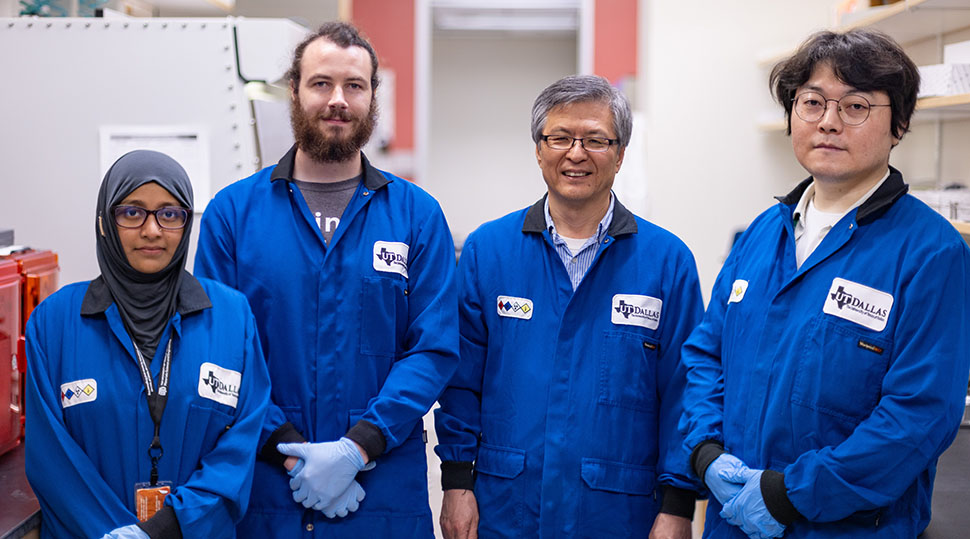
Dr. Kyeongjae Cho and his research team are working to develop safer, longer-lasting, and more efficient battery technology. From left are Manifa Noor and Matthew Bergschneider, McDermott Graduate Fellows and materials science and engineering doctoral students; Dr. Cho, and Dr. Taesoon Hwang, a postdoctoral researcher. [Photo: UT Dallas]
Partnering on battery-industry workforce development as well
UTD said it will also be partnering with North Texas community colleges “to train future employees with a range of expertise.”
The university cited a 2020 report from the Department of Energy’s National Renewable Energy Laboratory, which projects that the battery energy storage industry will need a minimum of 130,000 additional workers in the U.S. by 2030.
At least 12,000 of those workers will be needed in Texas, UTD said.
In just one example of battery industry workforce needs in the state, Tesla broke ground earlier this year on a Texas lithium refinery to produce the battery metal for electric vehicles, UTD noted.
“Renewable energy is a rapidly expanding area, and Texas is leading the country in the expansion of energy storage capacity,” Cho said. “We need not only PhD-level experts but also technicians who know how to safely handle batteries.”
Dr. Joseph Pancrazio, VP for research and innovation at UT Dallas and co-principal investigator on the project, called the initiative “a prototype for collaboration.”
“UTD and our partners will ensure that laboratory research and creative ideas from small businesses translate quickly toward commercialization,” Pancrazio said in a statement. “As a national resource, the collaborative space we’re creating will streamline the path of innovation in energy storage and battery technology, from prototyping and testing to manufacturing. Coupling technological advancement with workforce development ultimately will catalyze economic growth while bolstering national security.”
![]()
Get on the list.
Dallas Innovates, every day.
Sign up to keep your eye on what’s new and next in Dallas-Fort Worth, every day.

